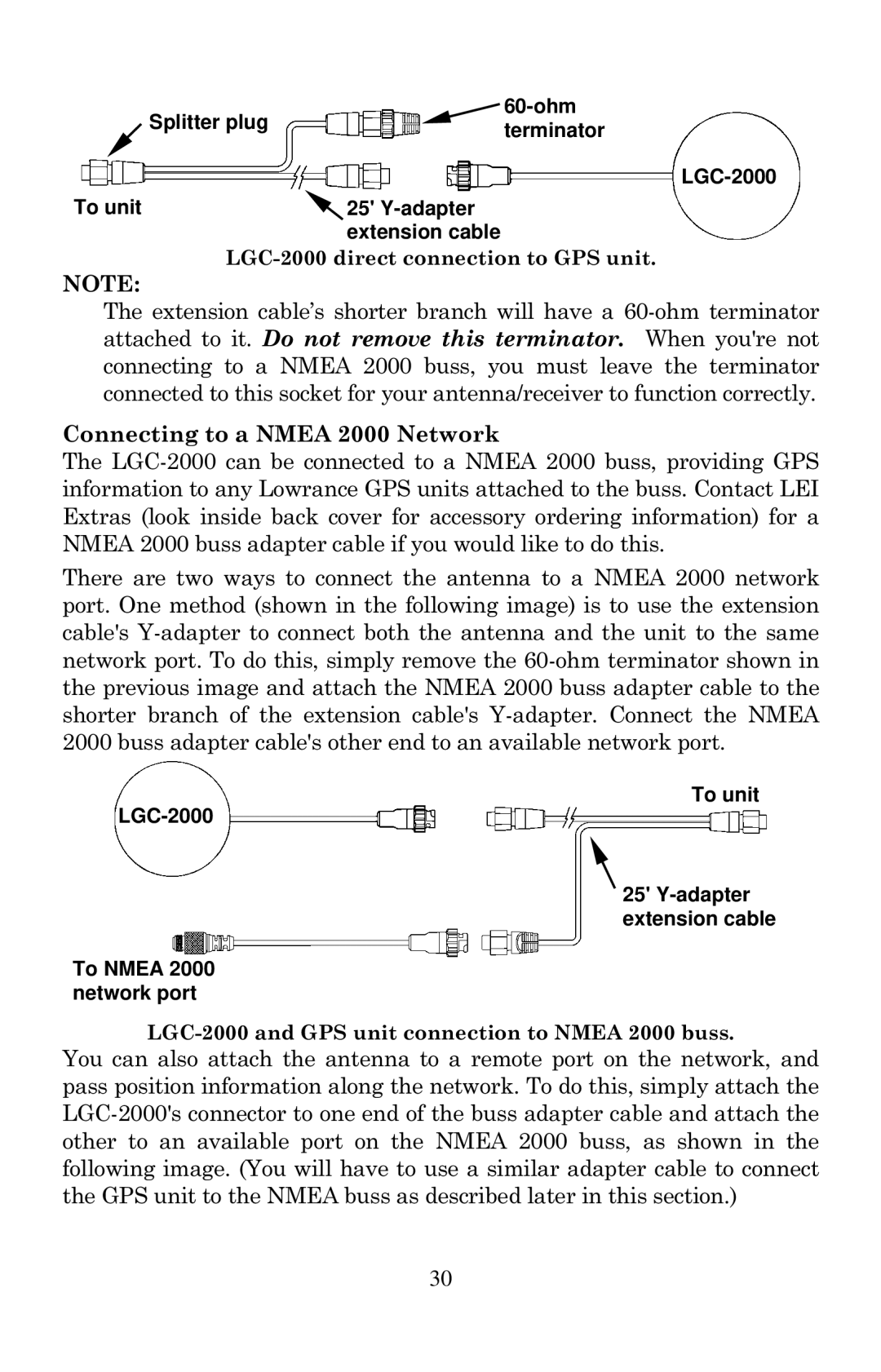
| Splitter plug | 60-ohm |
| terminator |
| |
| | LGC-2000 |
To unit | | 25' Y-adapter |
| | extension cable |
LGC-2000 direct connection to GPS unit.
NOTE:
The extension cable’s shorter branch will have a 60-ohm terminator attached to it. Do not remove this terminator. When you're not connecting to a NMEA 2000 buss, you must leave the terminator connected to this socket for your antenna/receiver to function correctly.
Connecting to a NMEA 2000 Network
The LGC-2000 can be connected to a NMEA 2000 buss, providing GPS information to any Lowrance GPS units attached to the buss. Contact LEI Extras (look inside back cover for accessory ordering information) for a NMEA 2000 buss adapter cable if you would like to do this.
There are two ways to connect the antenna to a NMEA 2000 network port. One method (shown in the following image) is to use the extension cable's Y-adapter to connect both the antenna and the unit to the same network port. To do this, simply remove the 60-ohm terminator shown in the previous image and attach the NMEA 2000 buss adapter cable to the shorter branch of the extension cable's Y-adapter. Connect the NMEA 2000 buss adapter cable's other end to an available network port.
To unit
LGC-2000
25' Y-adapter extension cable
To NMEA 2000 network port
LGC-2000 and GPS unit connection to NMEA 2000 buss.
You can also attach the antenna to a remote port on the network, and pass position information along the network. To do this, simply attach the LGC-2000's connector to one end of the buss adapter cable and attach the other to an available port on the NMEA 2000 buss, as shown in the following image. (You will have to use a similar adapter cable to connect the GPS unit to the NMEA buss as described later in this section.)

